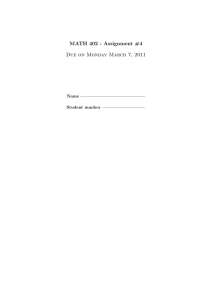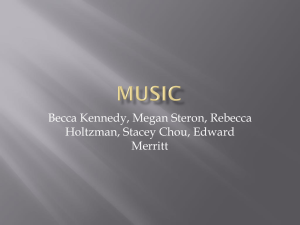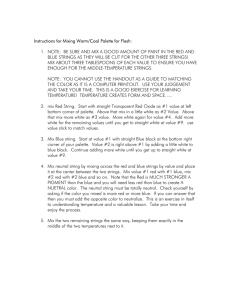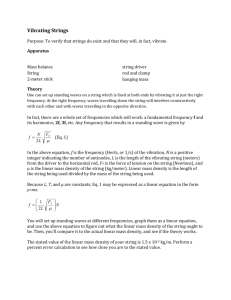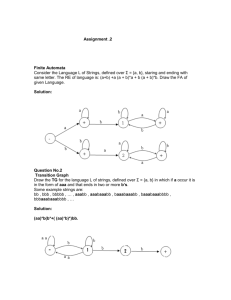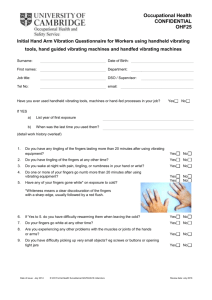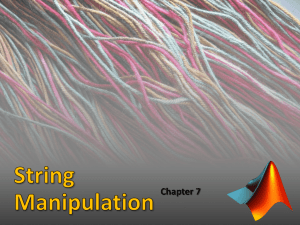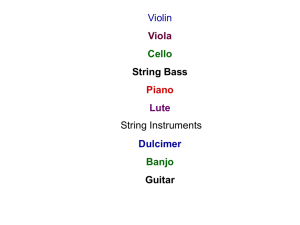Nicolas
advertisement
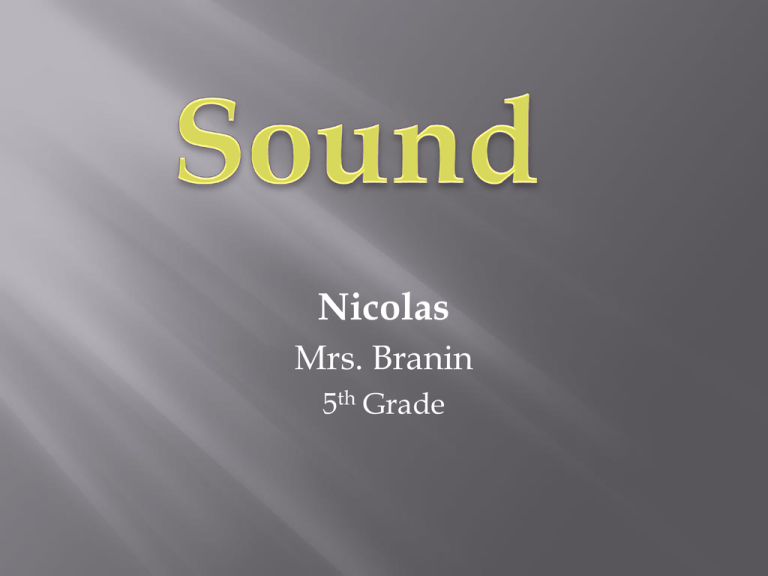
Nicolas Mrs. Branin 5th Grade Brass Vibrating Air Strings Vibrating Strings How Sound is Produced Percussion Vibrating Surface Woodwinds Vibrating Reed What Makes Sound •Vibration -A back-and-forth motion •Sound Waves –A vibration that spreads away from a vibrating object. How Sound is Produced by Strings •The strings make pitch •A thinner string vibrates faster and produces a higher pitched sound than a thicker string. •A thicker string vibrates slower and produces a lower pitched sound than a thinner string. •When you press the frets, you change the length of the vibrating portions of the strings. •Tuning pegs are turned to tighten or loosen the strings. What Makes Sound •Compression-the part of a sound wave where molecules are crowded together. •Rarefaction-the part of a sound wave where molecules are spread apart. What Sound Can Go Through Solids- You can tell when sound is going through a solid just by putting your ear on a tabletop. Someone could tap the end of a table and you could hear the tap louder than if you were standing in the hall. Liquids- if you go swimming, you could probably hear sounds in water around you. You would also be able to hear someone shouting above the surface. Gases-You can hear sounds in the air around you. The sound waves make parts of your ear vibrate. Since air is a mixture of gases, you can tell that sound waves can go through gases.

